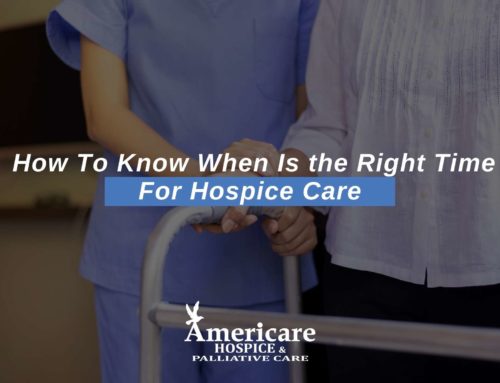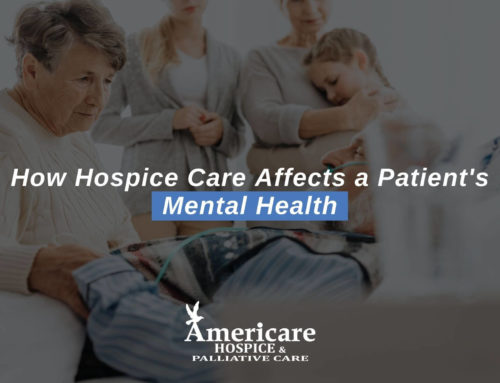Helping Loved Ones Handle Extended Isolation In Hospice
How To Support Our Senior Relatives To Cope With Social Distancing
Social isolation has always been a significant health concern for seniors, but even more so in the last year due to COVID-19 restrictions. However, as restrictions and precautions related to COVID-19 continue in many areas, seniors in Phoenix hospice care may feel as though there is no light at the end of the social distancing tunnel.
For over a year, most seniors have chosen or been required to stay home and keep their distance from the family, friends, and social groups that kept them active prior to the pandemic. While these guidelines helped protect people from the COVID-19 virus, they also created many mental, social, and physical challenges that have left seniors more isolated and inactive than they ever were before. It’s critically important that people who are caring for elderly, seniors, and chronically ill family members in Mesa hospice take seriously the effects of senior social isolation, and do everything they can to minimize these unintended consequences.
Understanding The Effects Of Social Isolation
There are a number of risks that sharply increase when seniors and those in Paradise Valley hospiceParadise Valley Hospice Care face loneliness and isolation. This includes cognitive decline, a 50% increase in risk of dementia, and an overall risk of premature death. As months of social isolation continue to stretch on with no “normal” in sight, seniors become highly susceptible to depression, anxiety, and even suicide. Additionally, when the elderly stay home for long periods of time, their physical activity is reduced and they are more likely to choose unhealthy eating habits. This can worsen chronic conditions and also leaves them at higher risk of heart disease, increased blood sugar levels, and increased cholesterol. Without regular exercise, and the social interaction exercise often included with physical activity, there is a risk of weight gain, heart disease, and other adverse effects to the heart and lungs. As muscles weaken from lack of activity, seniors are prone to losing their balance and falling.
Seniors Activities To Keep Them Engaged
Seniors in hospice and palliative care should do what they can to keep themselves to stay active and engaged as much as possible. Here are some suggestions:
- Organize your day. Having a regular schedule is important to those in Gilbert hospice care. To the extent that a person is able, this includes getting up at a consistent time, getting dressed, eating at regular times, and planning activities that can be done at home, such as reading, puzzles, projects, handicrafts, home improvements, cooking, calls with family and friends, and online classes.
- Stay active. Even if you cannot leave your home, there are still ways to get light exercise or physical therapy. One option is the free youtube videos offered by the National Institute on Aging, which can help with balance and flexibility.
- Reach out to other seniors. Remember that you’re not the only one feeling isolated or lonely. Reach out to friends, those who live alone, and loved ones in hospice care, all of whom want to hear a friendly voice as much as you do.
- Be open to new ways of communicating. It may take some time to learn, but try to connect with your family and friends through video chats and Zoom meetups. Try taking an online class that fits your interests, which will allow you to learn something new and even socialize with new people.
How Family & The Community Can Help Seniors
It’s essential that families and religious communities care for the seniors and hospice care patients in their lives. Here are some ways you can help:
Call Them
If you’re unable to visit, take time to make a meaningful phone call. While monthly or weekly phone calls were often sufficient in the past, isolated seniors need more frequent calls so that they can stay socially connected and engaged. Encourage other friends and family who are in less frequent contact to reach out. People in hospice and palliative care love the reminder of how many people love them.
Plan Activities
Arrange ways to visit your loved ones in Queen Creek hospice even though COVID-19 restrictions may make visiting more challenging. Try a window visit, connect outside, or share a meal in separate spaces. It’s worth the effort to find ways to spend time together.
Help With Activities That Can Be Done At Home
Set up your loved one with new puzzles, sewing projects, crafts, recipes, games, and more to help them stay occupied during the day. Consider a journal where your loved one can write stories or share about their lives. It’s also helpful to teach your family members in Mesa hospice to use technology such as video chats so they can feel empowered to connect with others.
Visit An Experienced Hospice Care In Mesa
If you’re looking for compassionate and experienced hospice care in Mesa, call Americare Hospice & Palliative Care to discuss your family’s situation. As an independently owned company, we are committed to providing skilled and exceptional care both in home and at our private inpatient facility. We are a diocese approved Catholic hospice offering care to people of all faiths. For more information, call Americare Hospice & Palliative Care at (480) 726-7773.

Americare Hospice and Palliative Care
1212 N. Spencer St., Suite #2
Mesa, Arizona 85203
Office: (480) 726-7773
Fax: (480) 726-7790
Email: info@americarehospice.org






